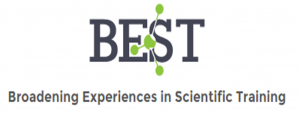When I entered graduate school, I had only one straight career path in front of me: get my degree, apply for a post-doc position, then a faculty position, and get on my way to becoming tenured. Honestly, I thought that was what everyone did after getting their PhD. Of course, I knew that there was the option of working in industry; however, that option always sounded vague, somewhat nontraditional, and a less desirable “alternative”. After several years, I slowly started to realize that maybe I’m not cut out to be a PI and run my own lab, and I wasn’t even sure if that was what I really wanted to do. Furthermore, I started hearing whispers about how hard it is to find a post doc position, and how nearly impossible it is to get a faculty position and become a PI. Coupled with the ever worsening funding situation, continuing the academic route suddenly seemed quite impossible for me. The industry route, of which I knew next to nothing about, seemed equally daunting, especially since I didn’t think I was getting the right kind of training to transition into industry. It was starting to look like I had no plans and no clear view of my path after grad school.
As the date of my graduation loomed ever closer, and I started getting the “What do you plan to do after you graduate?” question more and more often, I began feeling a sense of panic that not only did I not have a plan for after I graduate, I also didn’t really know what choices were available to me. Fortuitously, my adviser, Dr. James Millonig, is one of the program directors of the newly established Rutgers iJOBS program, which is funded by the NIH Broadening Experiences in Scientific Training (BEST) grant. He fully supported my taking the time away from the lab in order to go attend these events, which meant that I got to take full advantage of the first year of Rutgers iJOBS.
What is iJOBS?

iJOBS stands for Interdisciplinary Job Opportunities for Biomedical Scientists, and as mentioned above, it is a training program geared towards 1) informing PhD students about non-academic career opportunities, and 2) providing appropriate training to make them better prepared and more competitive in these various work environments. The iJOBS training program is structured into four phases, as described in the iJOBS website here:
- iNQUIRE – What non-academic careers are available? Is a non-academic career for me? Who are the people who work in these non-academic professional environments? These questions are answered through a variety of workshops (including the SciPhD discussed here, career panel discussions (FDA, government, Clinical and Regulatory, etc), industrial site visits (Merck, Genewiz), and symposia
- iNITIATE – Currently, the iJOBS training program focuses on the top five career tracks for biomedical science graduates (as determined by the Bureau of Labor Statistics and other agencies): 1) Science and Health Policy, 2) Intellectual Property (IP) Management, 3) Industry Development & Business Management, 4) Clinical Regulatory Testing and Support, and 5) Health Data (“Big data”) Analysis. Once you have determined and applied to a career track, the program offers individualized mentoring, industrial internships, and career shadowing opportunities.
- iMPLEMENT – At this phase, students at the job searching stage are offered assistance and various services through both iJOBS and the Rutgers Career Services.
- iNSTRUCT – This is an optional phase for participants who have completed their studies at Rutgers, and are invited to come as speakers for future career panel discussions , or to serve as an industrial partner/mentor for future iJOBS participants.
How iJOBS has been helpful to me:
- Career panel discussions have given me great exposure to different career paths, with people who are actually in that line of employment and who can give firsthand information about what the job entails, tips for applying for it, and their own personal experiences in the job search process. Interacting directly with the speakers also provided excellent networking opportunities.
- Attending the SciPhD certificate program administered by Human Workflows, LLC has been largely beneficial for several reasons. First, it is an outstanding workshop where scientists can learn the “business of science”, and gain professional skills necessary for scientists to be competitive not only during the job search (e.g. resume writing, interviewing skills, networking) but also in the actual non-academic professional careers (e.g. leadership skills, project management, and financial literacy).
- The Rutgers iJOBS blog was initiated by a student who attended iJOBS events and wanted a place where iJOBS trainees could share and discuss their experiences, opinions, and thoughts about the iJOBS program, the different professional career options, and the career development process. I volunteered as a writer for the blog, and it has been very enriching experience, in addition to giving me a broader perspective on my own career decisions.
The most surprising thing to me about my iJOBS experience is that it has somehow reinforced in me my love for research, and how I still would very much like to continue doing research after I graduate. However, iJOBS has also made me realize that I have additional passions, such as writing and science communication. All of this has in turn given more structure and direction towards my career path in the future.
The Rutgers iJOBS core mission is “to empower our PhD students and post-doctorate fellows to take action toward career development and to build the knowledge, professional network, and experience needed to reach their career objectives”. Compared to a year ago, I certainly feel more empowered, have had multiple opportunities to network, and I am armed with more knowledge needed to make a better informed decision for my future.
